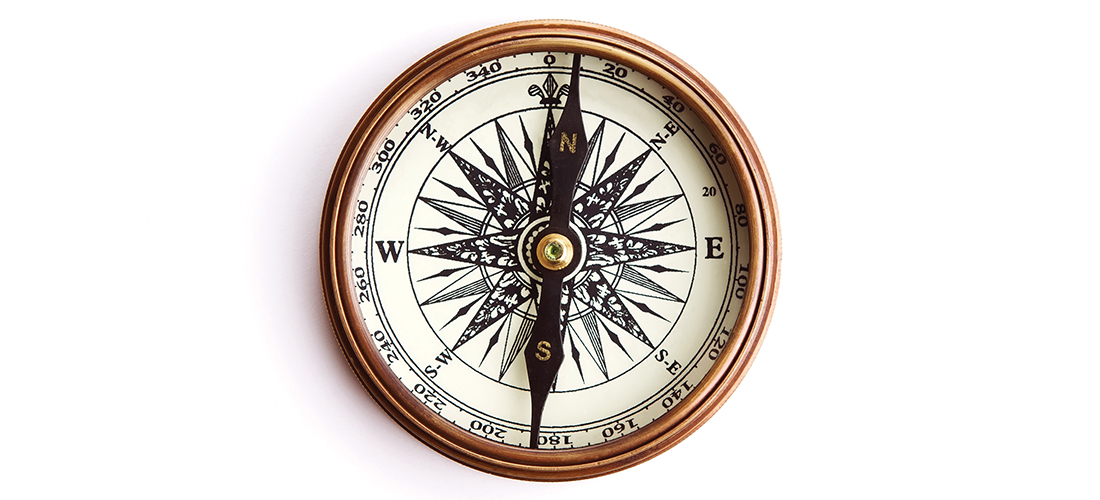The Mothers of Invention
A peek inside the private lives of writers
By D.G. Martin
How much impact do mothers of great authors have on their children’s writings?
Ask Daniel Wallace, creative writing professor at UNC-Chapel Hill and author of the humorous and poignant Big Fish.
In a new book, Mothers and Strangers: Essays on Motherhood from the New South, edited by North Carolina writers Lee Smith and Samia Serageldin, Wallace writes about his mother.
“My mother was twelve years old the first time she got married; her husband seventeen. This is how she told it, anyway, over and over again how she was married when she was twelve, and her husband’s name was John Stephens, and they ran off together to Columbiana, Alabama, where they found a judge who would marry them.”
As Wallace explains, his mother, Joan, and John were at a community swimming pool, and “with the crazy logic of two kids who were in love and in the grip of some uncontrollable hormones — trying to find any way to be together, to have sex with each other and make it right, make it okay somehow — they decided to get married, And they decided to get married that very day. Still in their bathing suits . . . ”
Joan set out, writes Wallace, “not to live as man and wife with John, because that wasn’t going to happen, but to have sex as a newly married couple might: with a feral eagerness. But ‘legally,’ and with the unintentional blessing of her mother. Where they had sex is unclear to me — my mother just said ‘everywhere they could’ — and they continued thusly until somehow my grandparents found out about it and had the marriage annulled. ‘It was a summer marriage,’ she said.”
Wallace’s mom told this story to everyone. “It was the perfect story,” Wallace writes, “because it cut to the chase of the kind of woman my mother was and who she always had been: defiant, sexual, shocking.”
Wallace says he got his “oversharing” storytelling gifts from her.
“She was a great storyteller, and much more creative than I ever gave her credit for. Because what I came to learn after a little bit of sleuthing, is that it wasn’t really true, this story she told. It didn’t happen like this at all.”
You will have to read Wallace’s entire essay to get something closer to the real truth. But even before we get to that point we can ask, why did Wallace’s mom lie about this story? Wallace tries to answer, “We learn more about people through the lies they tell than we do from the truths they share. I think this is why I became a fiction writer in the first place. It’s how I was raised.”
Thank goodness. Otherwise, we would have missed Big Fish, Extraordinary Adventures, and Wallace’s four other imagination-filled novels.
Wallace’s essay is just one of 28 about authors’ mothers collected by Smith and Serageldin in Mothers and Strangers. The contributors, all respected authors, include Wallace, Belle Boggs, Marshall Chapman, Hal Crowther, Clyde Edgerton, Marianne Gingher, Jaki Shelton Green, Sally Greene, Stephanie Elizondo Griest, Jacquelyn Dowd Hall, Eldridge “Redge” Hanes, Lynden Harris, Randall Kenan, Phillip Lopate, Michael Malone, Frances Mayes, Jill McCorkle, Melody Moezzi, Elaine Neil Orr, Steven Petrow, Margaret Rich, Omid Safi, James Seay, Alan Shapiro, Bland Simpson, Sharon K. Swanson and, of course, the two editors.
In comments about the book, Smith emphasizes that the relationships and experiences between mothers and children are varied. Each is unique. She explains, “America’s traditional Hallmark conception of Motherhood (note the caps) takes a real beating in these essays. The whole idea of motherhood is hampered by the stereotypes and preconceptions associated with it — mothers are selfless, right? Automatically loving and giving and happy with their biological and limited role, making biscuits from scratch and sewing all our clothes, yadayada. Almost nobody had a mother like that.”
Then she confesses, “Except me, I guess. Actually, my own sweet mother really did all these things, though she suffered terribly from depression when she quit teaching, which she had loved, to ‘stay home and take care of you.’”
In the book’s foreword Smith explains, “She sent me down to visit my lovely Aunt Gay-Gay in Birmingham, Alabama, every summer for two weeks of honest-to-God Lady Lessons. Here I’d learn to wear white gloves, sit up straight, and walk in little Cuban heels. I’d learn proper table manners, which would then be tested by fancy lunches at ‘The Club’ on top of Shades Mountain. I’d learn the rules: ‘A lady does not point. A lady eats before the party. A lady never lets a silence fall. A lady does not sit like that!’”
Smith’s description of her feelings for her loving parents and traditional upbringing will not surprise her fans, who have come to admire the loving respect with which Smith treats the main characters of her novels and short stories.
Jill McCorkle’s mother had a full-time job as a secretary while other mothers “were staying home and doing the June Cleaver thing.” McCorkle never felt slighted. She marvels at how her mother and her postal worker dad “owned a home and sent two children to college and faithfully tithed to the church.”
“Of course,” she continues, “the answer to that question is that they did without a lot for themselves.”
Her latest book, Life After Life, is set in a nursing-retirement home, where some residents are struggling with dementia. In her essay, she describes her mother’s current dementia. Most often she does not recognize her daughter. McCorkle writes, “If there is a sliver of grace to be pulled from the gnarled up tangle of dementia, it is that little bit of time given to loved ones to fully appreciate the scope of a whole life while the individual is still there and breathing and every now and then, for the briefest second, visible.”
Other writers describe different experiences with their mothers. Serageldin grew up in a prominent Egyptian family that was put into a stressful situation after the 1952 revolution. Threatened confiscation and arrests were part of the picture, but “she colluded with her mother’s pretense of normality, sensing that the illusion was more for the adult’s sake.”
Clyde Edgerton’s mother, Truma, was born to sharecropper parents who worked land in what is now the Umstead State Park near the Raleigh-Durham airport. When her father died, the family moved to Durham, taking a cow with them. When she was 12 years old, she went to work in a hosiery mill. Edgerton writes, “To my knowledge she never considered her upbringing to be in any way adverse.”
Edgerton lists some of her habits: “She’d never waste water. If she turned on a faucet for warm water, she’d collect the water that was getting warm and use it to water plants.
“She loved to listen to and tell and laugh about family stories — often the same ones over and over. Those stories were among my most special inheritances.”
Clyde says that Truma and her two sisters raised him.
He includes sections from his second novel, Walking Across Egypt, that are based on his mother. Then he writes, “That’s my mother. I wish you could have known her in person as I did. I think of her almost every day. I know I find solace in natural things, simple things — like trees, flowers, and birds — because of her inspired example of embracing and finding pleasure in the simple free gifts the earth provides . . . She never guessed that the son she hoped would be a concert pianist or a missionary would end up writing ‘talk’ for a living.”
These essays and all of the others are readers’ treasures. Short, written crisply by some of the region’s best authors, each one gives an inside look at the writer’s private life and how the mother faced and dealt with different sets of challenges, ones that have, for better or worse, helped make the writings of each author what they are today.
D.G. Martin hosts North Carolina Bookwatch Sunday at 11 a.m. and Tuesday at 5 p.m. on UNC-TV. The program also airs on the North Carolina Channel Tuesday at 8 p.m. To view prior programs go to: http://video.unctv.org/show/nc-bookwatch/episodes/.


